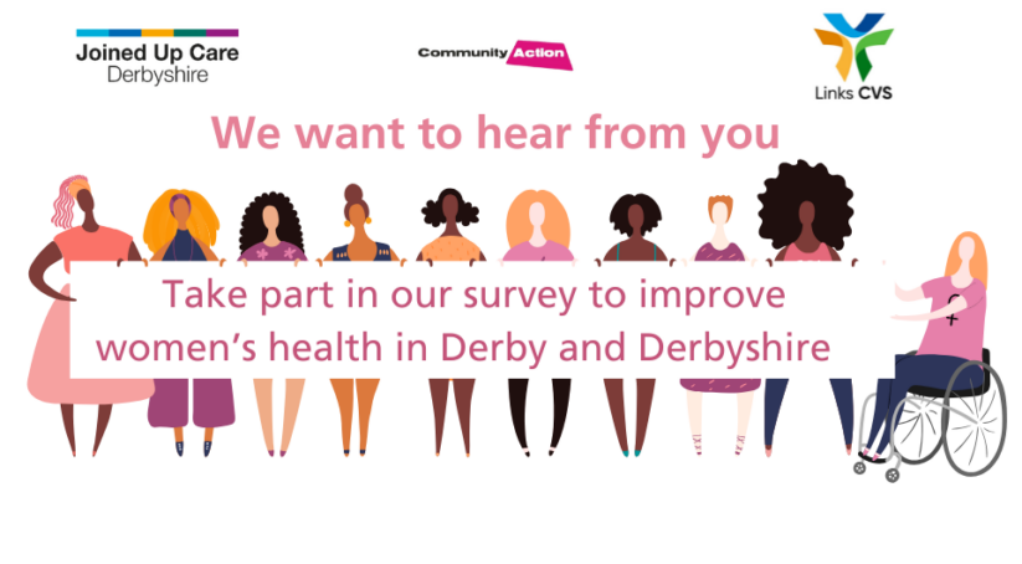Women asked how health services should be improved
Women across Derby and Derbyshire are being asked to give their views and help contribute towards improved health services.
NHS Derby and Derbyshire has been allocated £595,000 funding to change the way services are provided – and health leaders want to hear women’s views about what would make things better.
Women are asked to complete a short survey on the Derby and Derbyshire Involvement website, asking questions about
- experiences of accessing services for women’s health issues
- understanding and knowledge about women’s health
- information around women’s health, including screening
- communication preferences
The services being asked about include those that help with:
- menstrual problems
- menopause
- contraception
- preconception care
- breast pain
- cervical screenings
- sexually transmitted infections
Dr Kath Bagshaw, a GP at Littlewick Medical Centre, Ilkeston, is NHS Derby and Derbyshire Integrated Care Board deputy chief medical officer and clinical lead for the project.
She said: “We have an opportunity in this financial year to make improvements to women’s health services.
“We know by involving and speaking to local women that we can shape services to meet their needs.
“We can also make sure that the services meet the needs of different communities and are delivered in a way that best suits them.
“We also want to understand what stops women from accessing the care they need and finding solutions to address any challenges.
“Our aim is to create an open, inclusive, and valuable health service that truly meets the needs of women in Derby and Derbyshire.”
Examples of where women’s health services might be improved include:
- services such as contraception and menopause support are funded differently, so women have to use different services
- there is no specific sexual health clinic site for young women in Derby and there is also poor follow-up and support available for contraception after abortion and/or after having a baby
- some specialist services in hospitals have long waiting times for an appointment
Additionally, specific minority groups and seldom heard groups are being asked to contribute their views through a series of local and subject area workshops.
Community Action Derby and Link Community Voluntary Services in Derbyshire are running the workshops between November and Christmas for groups such as Asian women, Black women, deaf women and women who have learning disabilities.
These groups may include:
- those from minority ethnic backgrounds
- those from more deprived areas
- those with disabilities
- those who identify as LGBTQ+
- refugees
- carers
Sarah Barley-McMullan, a patient and public voice partner with the project, added: “We know that women have different and unequal experiences of accessing service for women’s health issues.
“There are differences depending where you live and which community you are from. For example, we know that experiences can be quite different if you are Black, Asian or from another minority ethnic group, or if you are LGBTQ+, or if you are a refugee.
“Your voice is important, so please do have your say through the survey or in your local community.”
It is planned to use the results from the listening exercise to make recommendations about how women’s health services should change for the better.

